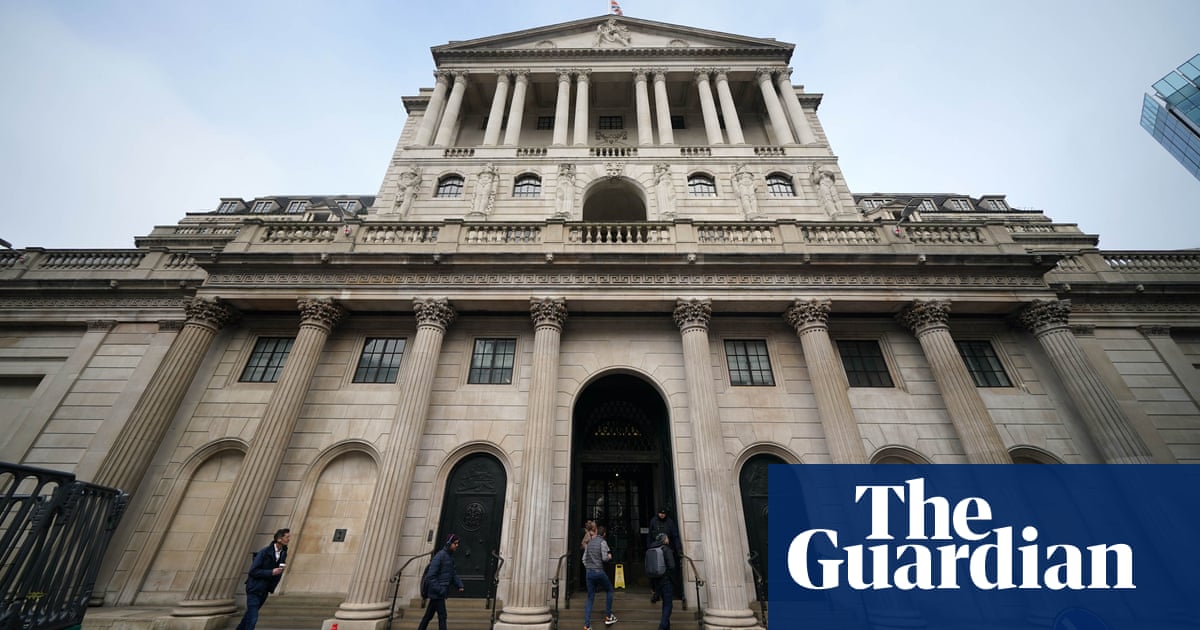
Britain is not on course for a return to the inflation rates seen in the 1970s and interest rates could still need to go below zero if the economy falters in the coming months, a senior Bank of England policymaker has said.
Jan Vlieghe, one of the nine members of Threadneedle Street’s monetary policy committee (MPC), said the UK was “not yet out of the woods” despite the vaccine-induced bounce in activity, and there was a risk of higher unemployment as the furlough scheme was withdrawn.
In a speech to the University of Bath, Vlieghe said that after an unprecedented fall in activity in 2020, there would be an unprecedented increase in 2021. “There is some temptation to call that a boom,” he said, but added: “I think it is more accurate to call it a prospective return towards normal.”
Vlieghe’s comments came as the latest weekly digest of economic data from the Office for National Statistics showed showed further increases in economic activity with job vacancies, credit and debit card use and restaurant bookings all increasing after the latest easing of lockdown restrictions earlier this month.
The ONS said:
The return of indoor seating at restaurants meant bookings in the week to 24 May were at 132% of the level in the same period of 2019.
The number of workers on the government’s wage subsidy furlough scheme had dropped by two points to 8% – its lowest level of 2021 so far.
The number of online job adverts in the week ending 21 May was 118% of the average level for February 2020, the month before curbs on activity were first announced.
The number of credit and debit card transactions was at 96% of the average February 2020 level.
The volume of motor vehicle traffic on Monday 17 May 2021 was at 97% of the level seen in the first week of February 2020.
Vlieghe said: “Economic prospects are better now than they have been at any time over the past year, thanks to the ongoing rapid rollout of vaccinations, but we are not out of the woods yet. Internationally, new virus cases remain elevated, which continues to weigh on global economic activity. In the UK, we are still dealing with so-called variants of concern, which may yet affect the pace at which the Covid-related restrictions can safely be eased.
“On the domestic economy front, we still have the wind-down of the furlough scheme ahead of us. While the MPC expect most furloughed workers to be reintegrated into the labour market smoothly, this process is subject to significant uncertainty. We are talking about millions of workers, and even if only a small share of them end up in unemployment later this year, that could lead to a rise in unemployment that is of macroeconomic significance.”
Vlieghe rejected the idea that increases in the money supply, commodity prices or wages were poised to send the inflation rate permanently above the government’s 2% target. “Comparisons with the 1970s are misplaced,” he said.
The MPC member said his central assumption was that the first increase in interest rates would not be needed until well into 2022 even if the economy performed according to the Bank’s forecasts of 7.25% and 5.75% growth this year and next.
There was a risk, he added, of both a faster and slower recovery. The former, marked by more pronounced inflation pressure, would bring forward the first tightening of policy to earlier in 2022 while the latter might require fresh easing from the MPC.
In the event that concern about new Covid variants depressed demand or the end of furlough led to a higher than expected jobless total it was “still possible that monetary policy might be required to simulate the economy a little further to help eliminate slack and ensure inflation, after its temporary rise later this year, does not subsequently fall back below its 2% target persistently.”












